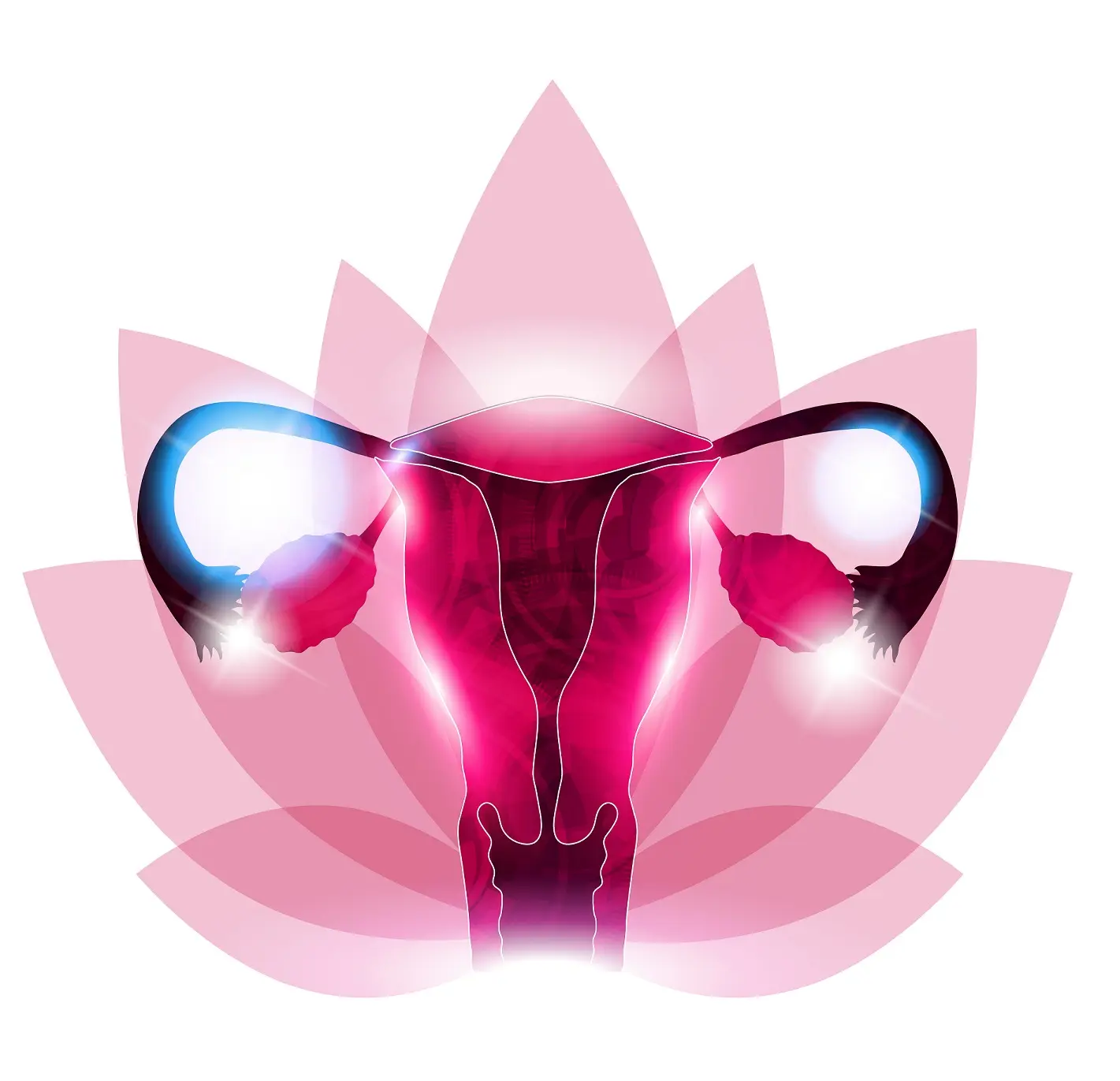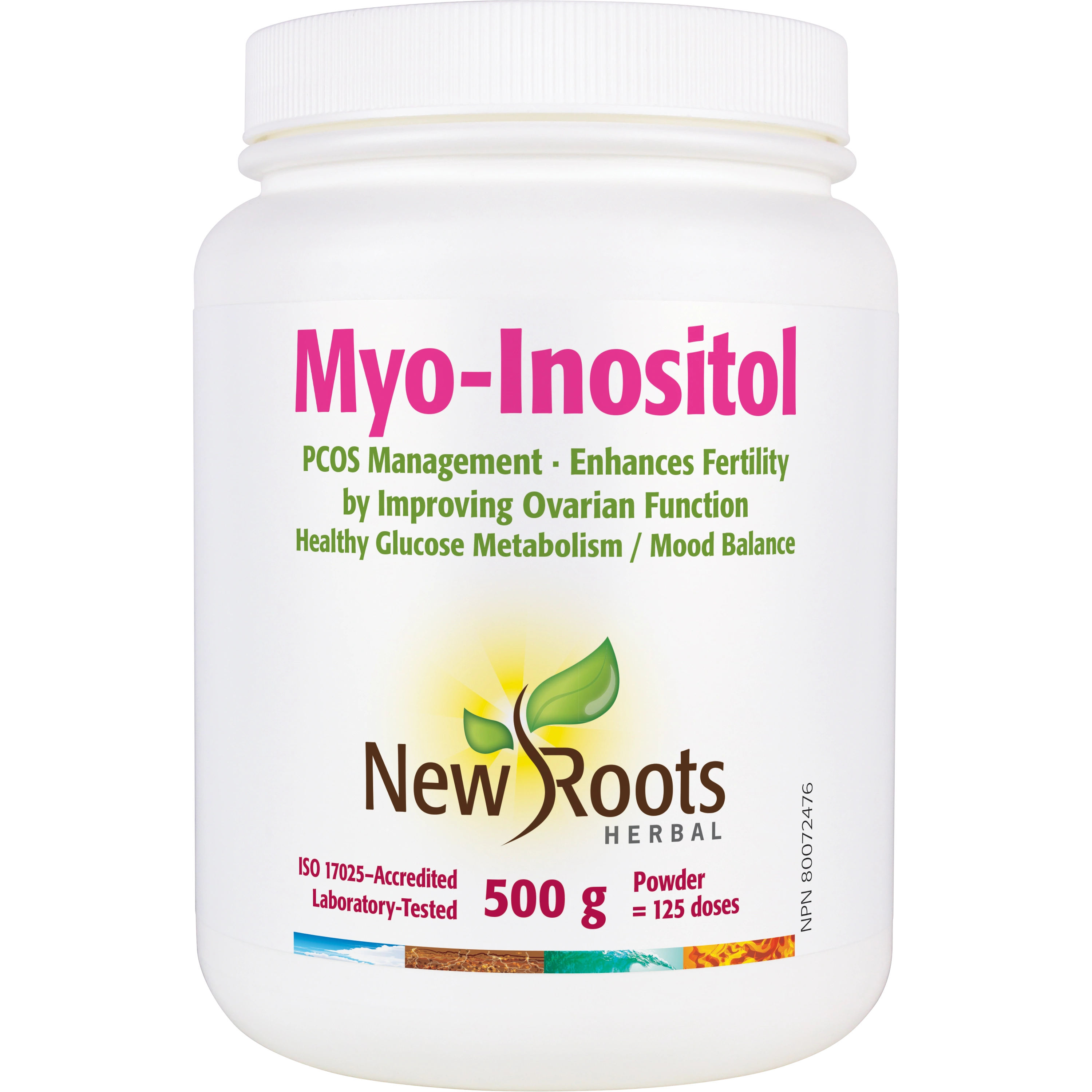Inositol: The Great Communicator—2018 Update
Last year, we discussed to role of inositol as a second messenger participating in multiple hormone-signaling pathways, mediating the ability of hormones to communicate with their target cells. Our aim here is to review the effect of inositol on the functioning of the ovaries and thyroid as well as the state of pregnancy, and to draw attention to new findings.
Inositol is a nutrient related to the family of B vitamins, and it has been extensively studies for its role in conditions related to fertility, such as polycystic ovary syndrome, and diabetes. Inositol is a “second messenger,” a critical component of intracellular signaling cascades.[1] This means that it participates in the sequence of events that occurs within the cell after a hormone binds to its receptor on the surface of the cell. This sequence of events then transmits the signal into the cell through a series of reactions, of which inositol is part. For this reason, we say that inositol augments hormonal signaling, or communication, throughout the body.
Inositol is known to function as a second messenger in two important hormone systems: the insulin signaling cascade and the thyroid signaling cascade.[2][3] myo-Inositol is also involved in follicle-stimulating hormone (FSH)–signaling, which is important in stimulating follicle development in preparation for ovulation.[3]
Insulin resistance is a critical factor in the cause of polycystic ovary syndrome (PCOS). This syndrome affects up to 10% of women, and involves impaired ovulation or lack thereof, elevated male-like hormones including testosterone or DHEA-S, and polycystic ovaries seen on ultrasound. Insulin resistance leads to elevated insulin levels, and this in turn impairs ovulation. Studies have shown that patients with PCOS have decreased levels of inositol, particularly in the theca cells of the ovary, and altered inositol metabolism.[3][4][5] When myo-inositol is supplemented in these patients, ovulation normalizes; sex hormones including estrogen, progesterone, and testosterone improve; and insulin resistance improves.[3] Other metabolic benefits associated with myo-inositol supplementation include reduction of elevated blood pressure and cholesterol.[3] A number of studies show restoration of normal ovulatory function in up to 65% of treated patients.[3]
Studies show that inositol may be equally as effective as metformin, an insulin-sensitizing medication often prescribed for PCOS, in regulating ovulation.[6] One study found that inositol supplementation restored normal ovulation in 65% of women, compared to 50% of women in the metformin group.[6] One study found that compared to metformin, inositol was superior in reducing elevated testosterone levels and measures of inflammation (C-reactive protein).[7] Another study found that when metformin and myo-inositol were compared, both yielded comparable results as far as the percent of patients with restored ovulation, improvements in insulin sensitivity, and a reduction in body mass index (BMI), a measure of obesity.[8]
 Inositol has also been investigated for its effects among patients undergoing fertility treatment. In patients with PCOS undergoing ovulation induction and intrauterine insemination (IUI), supplementation with myo-inositol resulted in higher rates of pregnancy and lowered the doses of medication required.[9] In patients undergoing IVF, inositol supplementation for three months beforehand has been shown to improve sperm and egg quality, improving follicle development, and reducing the amount of hormonal medication required.[10] Inositol also reduced the number of degenerated and immature eggs.[10] In another study among women classified as “poor responders” to IVF, the addition of myo-inositol supplementation resulted in a greater number of oocytes (eggs) retrieved and an improvement in egg quality.[11] This may be due to inositol’s role in augmenting FSH signaling. Indeed, researchers concluded that myo-inositol seemed to improve the ovarian response to gonadotropins (hormones FSH and LH) and the Ovarian Sensitivity Index (OSI), and thus may be helpful for women not responding well to fertility drugs.[11]
Inositol has also been investigated for its effects among patients undergoing fertility treatment. In patients with PCOS undergoing ovulation induction and intrauterine insemination (IUI), supplementation with myo-inositol resulted in higher rates of pregnancy and lowered the doses of medication required.[9] In patients undergoing IVF, inositol supplementation for three months beforehand has been shown to improve sperm and egg quality, improving follicle development, and reducing the amount of hormonal medication required.[10] Inositol also reduced the number of degenerated and immature eggs.[10] In another study among women classified as “poor responders” to IVF, the addition of myo-inositol supplementation resulted in a greater number of oocytes (eggs) retrieved and an improvement in egg quality.[11] This may be due to inositol’s role in augmenting FSH signaling. Indeed, researchers concluded that myo-inositol seemed to improve the ovarian response to gonadotropins (hormones FSH and LH) and the Ovarian Sensitivity Index (OSI), and thus may be helpful for women not responding well to fertility drugs.[11]
Interestingly, a new study has now suggested that inositol in combination with herbs including Tribulus may also improve male fertility.[12] A total of 60 patients with male infertility were randomized to either combination treatment with myo-inositol (1000 mg), Tribulus terrestris (300 mg), alga Ecklonia bicyclis (200 mg), and Biovis (one tablet a day for 90 days). At the end of this treatment period, results showed that sperm concentration and progressive motility significantly improved (3.82 million/ml v. 1.71 million/ml, and 4.86% v. 1.00%). DNA fragmentation was also significantly reduced compared to placebo (−1.64% v. −0.39%, p < 0.001).
Patients with PCOS are at higher risk of developing gestational diabetes (GDM) upon achieving pregnancy. Several studies suggest that supplementation with myo-inositol may reduce this risk. In one study, of 220 women with a family history of type 2 diabetes, supplementation with 4 g myo-inositol beginning at the end of the first trimester resulted in a significant decrease in the rate of GDM (6% v. 15% in the placebo group), and a decrease in macrosomia, giving birth to a large baby over 8.8 lb.[13] Another study showed that among obese pregnant women, supplementation with myo-inositol beginning in the first trimester reduced the development of GDM to 14% of women, compared to 34% of women in the control group.[14] Another study, of 75 pregnant women who were not obese but had an elevated fasting glucose in their first trimesters, found that myo-inositol supplementation resulted in a lower incidence of GDM diagnosed in the second trimester, as well as having generally smaller babies and delivering at a later gestational age (less premature delivery).[15] A fourth study, of 69 pregnant women with GDM, found that supplementation with myo-inositol resulted in improved insulin sensitivity in 50% of treated women, compared to 29% of women treated with diet alone.[16] A fifth study showed no effect in preventing GDM.[17]

Finally, many studies suggest that inositol may help to normalize thyroid function. A 2013 study of patients with Hashimoto’s thyroiditis, a chronic autoimmune thyroiditis that ultimately causes low thyroid function, found that supplementation with a combination of selenium and myo-inositol could improve laboratory measures of subclinical hypothyroidism, including lowering TSH and thyroid antibodies.[2] A more recent study found that, among 86 patients with Hashimoto’s and TSH between 3 and 6, treatment with selenium and myo-inositol for six months resulted in significant increases in free T3 and free T4 thyroid hormones, and a reduction in symptoms associated with subclinical hypothyroidism.[18] Supplementation was also associated with a decrease in TPO and antithyroglobulin antibodies.
A new study suggests that supplementation with inositol and selenium in patients with subclinical hypothyroidism may result in a reduction in the size and number of thyroid nodules.[19]
In conclusion, we see the evidence for inositol being the second messenger par excellence: Inositol is a critical component of hormone-signaling cascades including insulin, gonadotropins such as FSH, and the thyroid-stimulating hormone TSH. Inositol has been shown to improve ovulatory function, insulin resistance, and Hashimoto’s thyroiditis.
References
- Ting Li, S.Y., et al. “Identification and functional implications of sodium/myo-inositol cotransporter 1 in pancreatic beta-cells and type 2 diabetes mellitus.” Diabetes, Vol. 66, No. 5 (2017): 1258–1271.
- Nordio, M., and R. Pajalich. “Combined treatment with myo-inositol and selenium ensures euthyroidism in subclinical hypothyroidism patients with autoimmune thyroiditis.” Journal of Thyroid Research, Vol. 2013 (2013): 424163.
- Unfer, V., et al. “Effects of inositol(s) in women with PCOS: A systematic review of randomized controlled trials.” International Journal of Endocrinology, Vol. 2016 (2016): 1849162.
- Baillargeon, J.P., et al. “Greek hyperinsulinemic women, with or without polycystic ovary syndrome, display altered inositols metabolism.” Human Reproduction, Vol. 23, No. 6 (2008): 1439–1446.
- Baillargeon, J.P., et al. “Altered d-chiro-inositol urinary clearance in women with polycystic ovary syndrome.” Diabetes Care, Vol. 29, No. 2 (2006): 300–305.
- Raffone, E., P. Rizzo, and V. Benedetto. “Insulin sensitiser agents alone and in co-treatment with r-FSH for ovulation induction in PCOS women.” Gynecological Endocrinology, Vol. 26, No. 4 (2010): 275–280.
- Jamilian, M., et al. “Comparison of myo-inositol and metformin on clinical, metabolic and genetic parameters in polycystic ovary syndrome: A randomized controlled clinical trial.” Clinical Endocrinology, Vol. 87, No. 2 (2017): 194–200.
- Fruzzetti, F., et al. “Comparison of two insulin sensitizers, metformin and myo-inositol, in women with polycystic ovary syndrome (PCOS).” Gynecological Endocrinology, Vol. 33, No. 1 (2017): 39–42.
- Emekçi Özay, Ö., et al. “myo-Inositol administration positively effects ovulation induction and intrauterine insemination in patients with polycystic ovary syndrome: A prospective, controlled, randomized trial.” Gynecological Endocrinology, Vol. 33, No. 7 (2017): 524–528.
- Simi, G., et al. “Inositol and in vitro fertilization with embryo transfer.” International Journal of Endocrinology, Vol. 2017 (2017): 5469409.
- Caprio, F., et al. “myo-Inositol therapy for poor-responders during IVF: A prospective controlled observational trial.” Journal of Ovarian Research, Vol. 8 (2015): 37.
- Capece, M., et al. “A phytotherapic approach to reduce sperm DNA fragmentation in patients with male infertility.” Urologia, Vol. 84, No. 2 (2017): 79–82.
- D’Anna, R., et al. “myo-Inositol supplementation and onset of gestational diabetes mellitus in pregnant women with a family history of type 2 diabetes: A prospective, randomized, placebo-controlled study.” Diabetes Care, Vol. 36, No. 4 (2013): 854–857.
- DʼAnna, R., et al. “myo-Inositol supplementation for prevention of gestational diabetes in obese pregnant women: A randomized controlled trial.” Obstetrics and Gynecology, Vol. 126, No. 2 (2015): 310–315.
- Matarrelli, B., et al. “Effect of dietary myo-inositol supplementation in pregnancy on the incidence of maternal gestational diabetes mellitus and fetal outcomes: A randomized controlled trial.” The Journal of Maternal-Fetal & Neonatal Medicine, Vol. 26, No. 10 (2013): 967–972.
- Corrado, F., et al. “The effect of myo-inositol supplementation on insulin resistance in patients with gestational diabetes.” Diabetic Medicine, Vol. 28, No. 8 (2011): 972–975.
- Farren, M., et al. “The prevention of gestational diabetes mellitus with antenatal oral inositol supplementation: A randomized controlled trial.” Diabetes Care, Vol. 40, No. 6 (2017): 759–763.
- Nordio, M., and S. Basciani. “Treatment with myo-inositol and selenium ensures euthyroidism in patients with autoimmune thyroiditis.” International Journal of Endocrinology, Vol. 2017 (2017): 2549491.
- Nordio, M., and S. Basciani. “Evaluation of thyroid nodule characteristics in subclinical hypothyroid patients under a myo-inositol plus selenium treatment.” European Review for Medical and Pharmacological Sciences, Vol. 22, No. 7 (2018): 2153–2159.
 Heidi Fritz, MA, ND
Heidi Fritz, MA, ND
A practicing naturopathic doctor since 2007, her areas of
focus include women's health, children's health, chronic
pain, and more.


